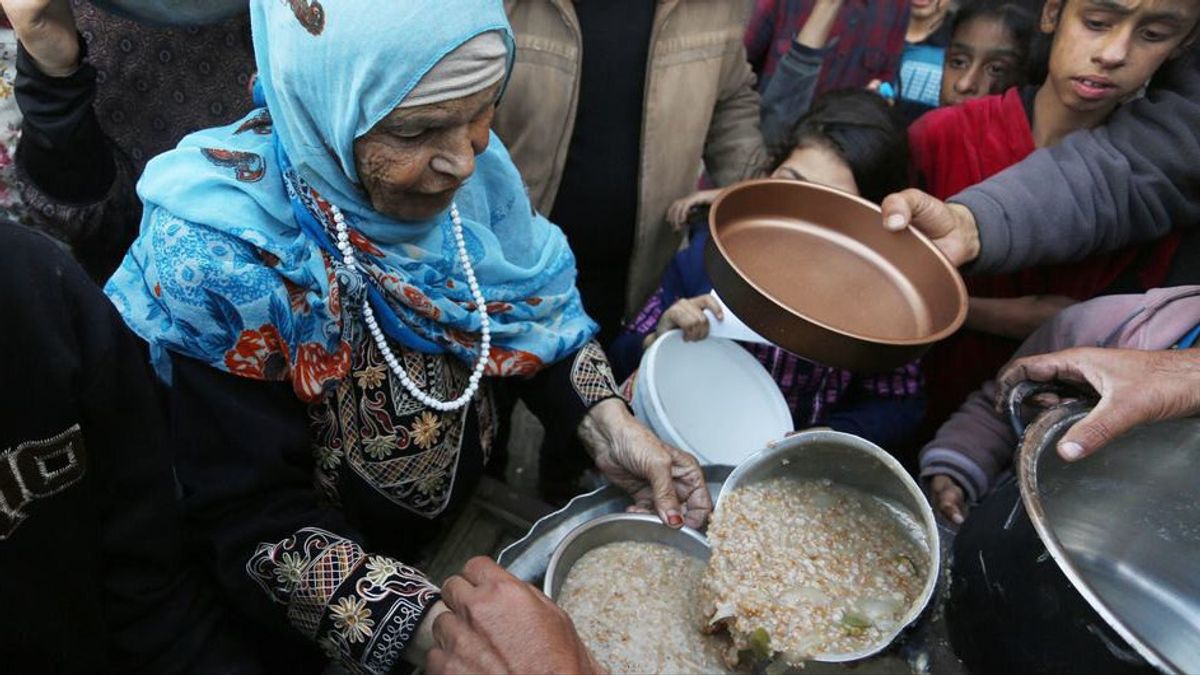JAKARTA - A quarter of the population in the Gaza Strip, or about 576,000 people, is one step away from starvation, a senior UN aid official told the Security Council, warning widespread famine could be "almost inevitable" if no action is taken.
"There is very little possibility that hostilities continue and there is a risk that the conflict will spread to densely populated areas south of Gaza. Therefore, we repeat our call for a ceasefire," explained UN Office of Humanitarian Affairs Coordination Director Ramesh Rajasingham, reported by Reuters, February 28.
Additionally, one in six children under the age of 2 in northern Gaza suffers from acute malnutrition. In practical terms, 2.3 million people in the Palestinian enclave depend on "woefully inadequate" food aid to survive, he said.
Rajasingham said the UN and aid groups faced "huge obstacles just to get minimum supplies to Gaza." These include closed crossings, restrictions on movement and communications, difficult screening procedures, riots, damaged roads, and unexploded mines, he said.
On the other hand, Israel's Deputy Ambassador to the UN Jonathan Miller said his country was committed to improving the humanitarian situation in Gaza, adding that limiting the amount and speed of aid depended on the capacity of the UN and other agencies.
"Israel is clear in its policy. There is absolutely no limit, and I repeat, no limit on the amount of humanitarian aid that can be sent to the civilian population in Gaza," explained Miller.
It is known that the United States is urging Israel to keep border crossings open for the delivery of humanitarian aid to Gaza, facilitating the opening of more crossings, US Deputy Ambassador to the UN Robert Wood told the Security Council.
"Simply put, Israel must do more," he said.
SEE ALSO:
"We continue to call on Israel to improve deconfliction procedures to ensure aid can be distributed safely and securely," he stressed.
Meanwhile, the World Food Program (WFP) is "ready to immediately expand and scale up our operations if there is a ceasefire agreement," said WFP Deputy Executive Director Carl Skau.
"But in the meantime, the risk of famine is fueled by the inability to bring essential food supplies to Gaza in sufficient quantities, and the almost impossible operating conditions faced by our staff on the ground," explained Skau.
The English, Chinese, Japanese, Arabic, and French versions are automatically generated by the AI. So there may still be inaccuracies in translating, please always see Indonesian as our main language. (system supported by DigitalSiber.id)


















